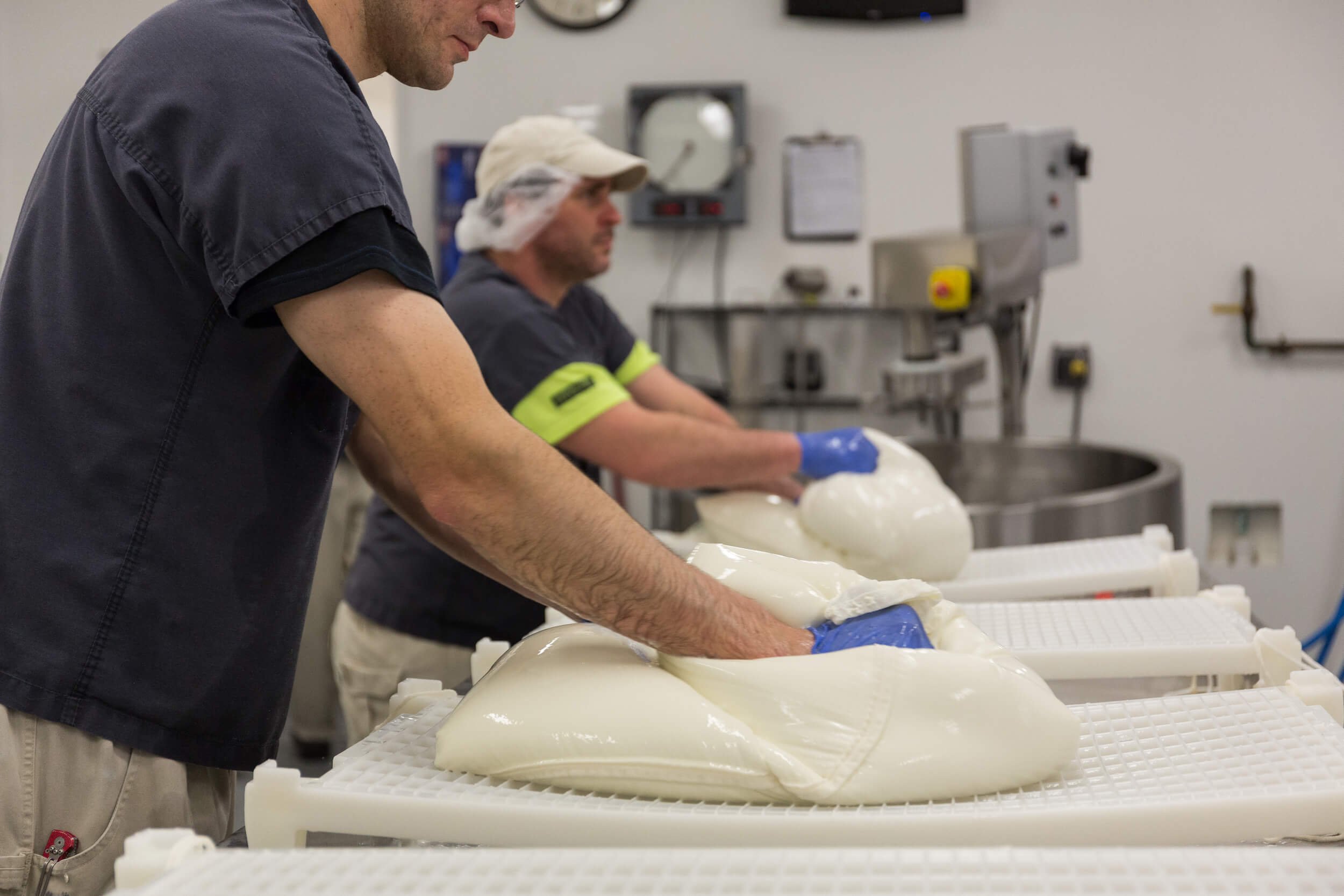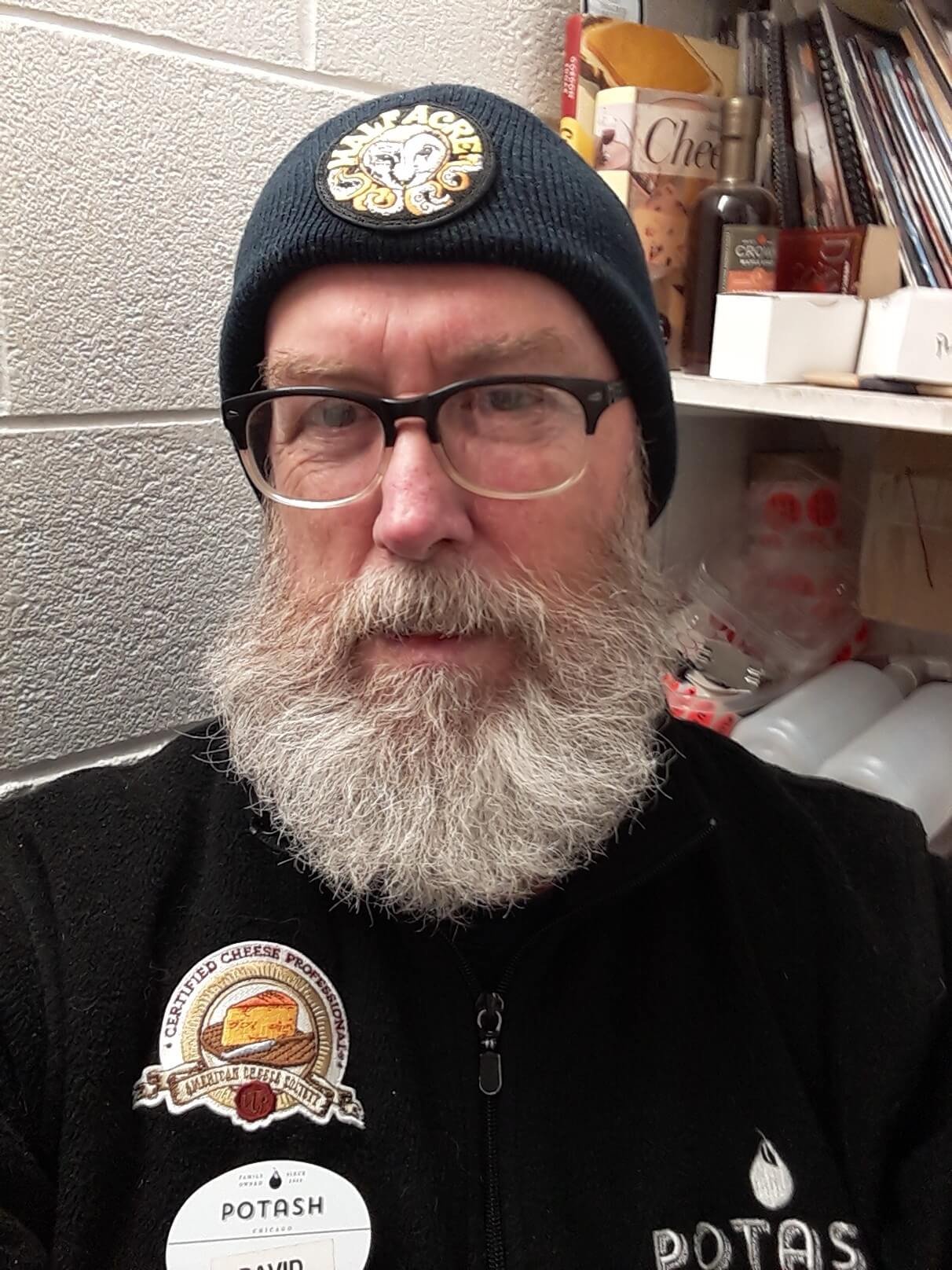Cheese Industry Insiders Share their 2023 Business Outlook
As we head into 2023, we thought it would be good to hear from those in the industry—specifically a cheesemaker, cheese importer, and a cheesemonger— to get a sense of how things are going and what they anticipate for the new year.
Our thanks to Mike Koch, president and cofounder Firefly Farms and president of the American Cheese Society, Michele Buster of Forever Cheese, and David Phillips of Potash Market and for weighing in and sharing their points of view.
Cheesemaker: Mike Koch, Firefly Farms
How’s Business?
It’s a volatile market. It’s generally going quite well, we are finishing a year where sales grew. Beneath the topline channels are shifting, costs are increasing, supply chains are strained, workforce is a real problem. It’s all mitigating the celebratory mood. Less of the net income is falling down to the bottom line.
What are the key things you are concerned about as we head into 2023 for the members of ACS?
I’ve spent 20 years in the business and what drove me into it was a focus on food system repair, and I think the first thing that comes to mind is the persistent disconnect in the American consumer mind about the real cost of food. We’ve been raised to know that food should be plentiful and cheap and breaking that apart into functional, more regionalized less industrialized systems with all the negative effects—is the understanding that to the pay the farmer fairly, to process it in a food safe manner, to pay employees a living wage in or to allow them to save for the future and afford healthcare requires a higher price at the cheese case. That issue has become red hot as prices have started to increase. People who don’t increase their prices are selling at a loss.
There’s so much push back in the marketplace—distributors and retailers— and you’re left thinking, am I supposed to just swallow this? If you thought you could get away with not paying a living wage, forget it, the market has become so competitive. There’s a reckoning about the true cost of food.
How are things on the farm?
Making cheese photo courtesy Firefly Farms
I love being in the country, we are excited by a year we finished that was one of the best we ever had. We relocated our retail store and that quadrupled our square footage and allows us to make sandwiches and sell coffee and wine. We’re finishing a good year and the team is in a good place. We are aggregating milk from 17 family farms. We’re here to contribute to our community and preserve family farming. The workforce shortages—we feel it here, there’s a long tail of the pandemic that has changed people’s view of the workplace. It’s harder to find people to leave their home and actually do physical work. Cheesemaking is very physical, it’s a lot of cleaning and attention to detail. You’re constantly washing and sanitizing and there are fewer and fewer people willing to do that. It’s creating a strain, especially in rural environments. We’ve invested in keeping people.
The ag community was very skewed to the statistical mean, doing traditional crop farming and not invested in value add and farmer’s markets were nowhere. Now 20 years later that traditional archetype is still there but there’s been a happy resurgence in farming. Notably millennials are getting into CBD and hemp and small-scale livestock farming, pastured pork and honey and beekeeping. It makes the consumers all the more engaged. But cheesemaking has become very capital intensive, and there are barriers that are regulatory and economic, not to mention food safety issues.
From an ACS perspective there has never been a more important time for us to add member value and reduce barriers to success. We need to create a place where new cheesemakers can make it! I’m bullish on creating additional business support, enabling conversations that can lead to solutions for capitalization. That sort of commitment to member value and doubling down on our education is core. The other place to focus on is climate impact and to not ignore the incredible investment in plant-based alternatives. ACS is committed to being part of the conversation. The benefits of cheese from milk are well known. Soil rejuvenation is well known.
How is ACS addressing diversity, equity, and inclusion (DEI)?
We need to ask the questions: What are our blind spots? Where have we been unaware of systemic racism? How do we create a more inclusive leadership ladder and one that is more welcome to all people of all skin colors? Make room floors are diverse, but management rooms aren’t. Investing in leadership ladder development and being conscious of where barriers exist, even economic barriers such as the ability to attend conference or volunteer time are all being asked and examined. Then some harder ones, is it possible that the industry is slightly enamored with western European traditions of making cheese? How does that ripple into judging and education, etc.?
What’s happening in the industry that you are most excited or feeling most positive about?
Demand for artisan cheese is high and growing. Point-of-sales is changing, when we started making cheese in 2002, we were at the beginning of a change in retail. I think Whole Foods and Wegman’s cheese became destinations and fostered an interaction with education and customer service. It fueled our industry. But the cut and wrap counters are dying fast. In their place you’ve got grab and go. You’ve got cheese in more places, and UPC fixed weight. That left a lot of people behind. It took a lot of investment. But the plus side is the destinations have multiplied. You can sell to direct-to-consumer websites and higher end convenience stores even if grocers never invested. We had a very successful placement with Costco.
At retail we have an old-fashioned cut and wrap machine. There’s education that happens at retail and we’re developing a lifelong cheese consumer, but if you only sell like that your market is going to get smaller and smaller. It’s just the reality of what’s going on and we have to address it.
Cheese Importer: Michele Buster, Forever Cheese
How is Business?
Every year there’s a different challenge but we are very positive about 2023, but we are always feeling like we have to work harder than ever to support our producers with milk shortages and difficulty in getting raw materials, just getting the cheese is so much harder than it used to be. We have to tell their stories even more, and producers are feeling the crunch. They need our support.
We are excited to keep the launch of our Truffle Kid. Goat’s milk cheese with truffles. We just launched a fresh cheese. We’ve wanted to do a fresh cheese like a queso fresco but it’s hard because of the shelf life. We launched a lot of things last year—the mini jams, the round fig and date products, some of it is gifty or just to make sandwiches with.
I’m working on a project Save the Shepherd, I heard there was a shortage of sheep and sheep’s milk in La Mancha and now it’s everywhere. A lot of people raising animals gave up because the cost of feed was too high some have switched to raising meat or just stopped. It’s already not an easy life and post war or pandemic issues. That shortage is being perpetuated, working with different governments and journalists, etc. to bring it to light.
You can’t willy-nilly accept every price increase, but if the farmer can’t get the price they need to feed animals, then there’s nothing left. It’s finding a balance to pay a fair price but not go so far that it’s unreasonable.
Bodegon queso dop Zamorano el pastor photo credit Forever Cheese
People want Manchego so we don’t know where the price ceiling is. We are actually bringing in a Queso Castellano. We wanted an IGP Castellano, and it’s a good alternative. It’s Zamorano from Castilla y León. We’ve called out other wonderful sheep’s milk cheese.
But the thing is there are challenges in all walks of life, there’s a goat’s milk shortage, cow’s milk prices are high, producing cheese on islands is hard. Anything agricultural is a challenge. We work together to make it. How to handle the price challenges. We don’t dwell on it. We try and put into perspective but it’s the reality. I’m still trying to round out different areas of the country that we work in.
What regions are you excited about?
In general, I am looking at Croatia, but it’s time consuming to source new products and develop relationships. I’m excited about Portuguese butter and about offering more things from Portugal in general. But things go slow, and it’s hard to find new things there. I always feel like Catalunya is filled with richness. I have more from Galicia than I’ve ever had before including a one-year aged cow’s milk cheese. In Italy we have focused on Valle d’Aosta, we’re looking at longer aged and smaller farms. Our focus is looking for deliciousness that’s different. Not everything travels well, and it can be a long route to get to market in the US.
Cheesemonger: David Phillips, Potash Markets
How’s business?
Our business storewide has slowed, with about 10% drop in traffic compared to a year ago. But the cheese department has held on a little bit better. Customers are more price conscious, certainly, but my cheese customers have also become more willing to try things they are less familiar with.
What’s new and what are you looking forward to?
At the store level there’s better, real artisan cheeses available in precut retail packaging. There’s better packaging all around. Vacherin styles are coming from everywhere. I'm most excited about new producers entering the field, sharing ideas and knowledge, and thereby continuing to drive quality and innovation in the larger American artisan cheese arena.
I'm also thrilled to see new specialty cheese shops opening, even though many have closed, and to see quality grocery stores that continue to build stores with beautiful full-service cheese counters. I hope that independent cheese makers continue to thrive, and I would love to see them do more to let people know that their independence is important. I also think we will see more independent affinage in the U.S. Crown Finish Caves didn't survive the pandemic, but I think what they did was pretty amazing and I would like to think that somebody else would take that up.






